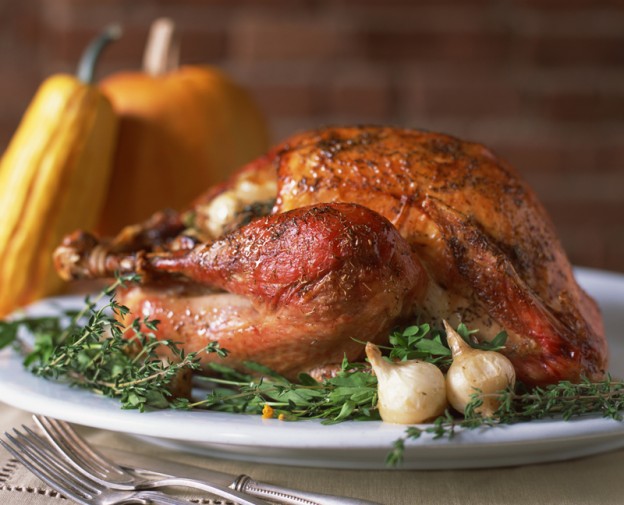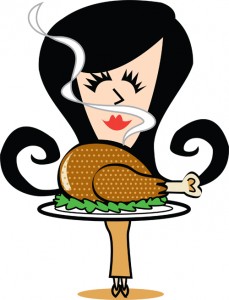
Resources  With the holiday season approaching there are numerous exciting, new activities that children will be experiencing. These experiences can bring joy and family memories to cherish in the years to come.
However, many children have challenges with changes in their routine and can become over-stimulated by the various sights, sounds, smells, and people who will be present during the holiday season. Parents themselves, at times, find that they are more hurried and overburdened with all the tasks that need to be accomplished, becoming less focused to the needs of others, which can lead to difficult transitions or meltdowns for those special children in particular.
It’s a good idea to take some time before the holidays to prepare children for these celebrations, while giving them opportunities to practice, familiarize, and become knowledgeable of the social scripts, sights, sounds, and smells that make this season sparkle. We recommend these suggestions:
1. Pull out family photos and identify relatives and friends who will be visiting or whom you will visit.
2. Practice social greetings, farewells, and thankfulness.
3. Model various socially appropriate responses to receiving gifts (e.g. saying thank you even when the gift is not exactly what they were hoping for).
4. Make a visual schedule of events, especially those that are not part of the child’s daily routine.
5. Use the computer to take visual tours of places you may be visiting.
6. Talk about and show pictures of the various environments your child may encounter, describing possible sounds and sights, and how things may be different from the other times your child has visited.
7. Practice tasks that the child will be involved in that contain sequence steps (e.g. lighting a menorah, decorating a tree) and, if needed, make visual sequence boards, comic strip stories, etc.
8. Practice receiving and giving compliments.
9. Have your child help choose gifts for others, teaching skills of compare/contrast, desirable/non-desirable, self/others.
10. For all children, this time of year can be a chance to teach social concepts of empathy, kindness, charity, gratitude and family.
11. Build vocabulary associated with this time of year.
12. Read books that relate to holiday themes or offer familiarization with typical tasks or events that may occur during the holiday season.
13. If traveling, prepare some of the child’s favorite things for the long rides or flights.
14. Let children know how long they will be at certain places and what skills will be needed, perhaps focusing on one particular skill and allowing time for decompressing.
15. Don’t overload your day with too many activities. Be prepared to have the child participate in just a portion of the event and have a plan for the child to leave with a parent so the rest of the family can stay.
We hope that these ideas will aid you and your family in having a season filled with wonderful memories for years to come.
With the holiday season approaching there are numerous exciting, new activities that children will be experiencing. These experiences can bring joy and family memories to cherish in the years to come.
However, many children have challenges with changes in their routine and can become over-stimulated by the various sights, sounds, smells, and people who will be present during the holiday season. Parents themselves, at times, find that they are more hurried and overburdened with all the tasks that need to be accomplished, becoming less focused to the needs of others, which can lead to difficult transitions or meltdowns for those special children in particular.
It’s a good idea to take some time before the holidays to prepare children for these celebrations, while giving them opportunities to practice, familiarize, and become knowledgeable of the social scripts, sights, sounds, and smells that make this season sparkle. We recommend these suggestions:
1. Pull out family photos and identify relatives and friends who will be visiting or whom you will visit.
2. Practice social greetings, farewells, and thankfulness.
3. Model various socially appropriate responses to receiving gifts (e.g. saying thank you even when the gift is not exactly what they were hoping for).
4. Make a visual schedule of events, especially those that are not part of the child’s daily routine.
5. Use the computer to take visual tours of places you may be visiting.
6. Talk about and show pictures of the various environments your child may encounter, describing possible sounds and sights, and how things may be different from the other times your child has visited.
7. Practice tasks that the child will be involved in that contain sequence steps (e.g. lighting a menorah, decorating a tree) and, if needed, make visual sequence boards, comic strip stories, etc.
8. Practice receiving and giving compliments.
9. Have your child help choose gifts for others, teaching skills of compare/contrast, desirable/non-desirable, self/others.
10. For all children, this time of year can be a chance to teach social concepts of empathy, kindness, charity, gratitude and family.
11. Build vocabulary associated with this time of year.
12. Read books that relate to holiday themes or offer familiarization with typical tasks or events that may occur during the holiday season.
13. If traveling, prepare some of the child’s favorite things for the long rides or flights.
14. Let children know how long they will be at certain places and what skills will be needed, perhaps focusing on one particular skill and allowing time for decompressing.
15. Don’t overload your day with too many activities. Be prepared to have the child participate in just a portion of the event and have a plan for the child to leave with a parent so the rest of the family can stay.
We hope that these ideas will aid you and your family in having a season filled with wonderful memories for years to come.
15 tips to make sure your child is ready for the holidays
 With the holiday season approaching there are numerous exciting, new activities that children will be experiencing. These experiences can bring joy and family memories to cherish in the years to come.
However, many children have challenges with changes in their routine and can become over-stimulated by the various sights, sounds, smells, and people who will be present during the holiday season. Parents themselves, at times, find that they are more hurried and overburdened with all the tasks that need to be accomplished, becoming less focused to the needs of others, which can lead to difficult transitions or meltdowns for those special children in particular.
It’s a good idea to take some time before the holidays to prepare children for these celebrations, while giving them opportunities to practice, familiarize, and become knowledgeable of the social scripts, sights, sounds, and smells that make this season sparkle. We recommend these suggestions:
1. Pull out family photos and identify relatives and friends who will be visiting or whom you will visit.
2. Practice social greetings, farewells, and thankfulness.
3. Model various socially appropriate responses to receiving gifts (e.g. saying thank you even when the gift is not exactly what they were hoping for).
4. Make a visual schedule of events, especially those that are not part of the child’s daily routine.
5. Use the computer to take visual tours of places you may be visiting.
6. Talk about and show pictures of the various environments your child may encounter, describing possible sounds and sights, and how things may be different from the other times your child has visited.
7. Practice tasks that the child will be involved in that contain sequence steps (e.g. lighting a menorah, decorating a tree) and, if needed, make visual sequence boards, comic strip stories, etc.
8. Practice receiving and giving compliments.
9. Have your child help choose gifts for others, teaching skills of compare/contrast, desirable/non-desirable, self/others.
10. For all children, this time of year can be a chance to teach social concepts of empathy, kindness, charity, gratitude and family.
11. Build vocabulary associated with this time of year.
12. Read books that relate to holiday themes or offer familiarization with typical tasks or events that may occur during the holiday season.
13. If traveling, prepare some of the child’s favorite things for the long rides or flights.
14. Let children know how long they will be at certain places and what skills will be needed, perhaps focusing on one particular skill and allowing time for decompressing.
15. Don’t overload your day with too many activities. Be prepared to have the child participate in just a portion of the event and have a plan for the child to leave with a parent so the rest of the family can stay.
We hope that these ideas will aid you and your family in having a season filled with wonderful memories for years to come.
With the holiday season approaching there are numerous exciting, new activities that children will be experiencing. These experiences can bring joy and family memories to cherish in the years to come.
However, many children have challenges with changes in their routine and can become over-stimulated by the various sights, sounds, smells, and people who will be present during the holiday season. Parents themselves, at times, find that they are more hurried and overburdened with all the tasks that need to be accomplished, becoming less focused to the needs of others, which can lead to difficult transitions or meltdowns for those special children in particular.
It’s a good idea to take some time before the holidays to prepare children for these celebrations, while giving them opportunities to practice, familiarize, and become knowledgeable of the social scripts, sights, sounds, and smells that make this season sparkle. We recommend these suggestions:
1. Pull out family photos and identify relatives and friends who will be visiting or whom you will visit.
2. Practice social greetings, farewells, and thankfulness.
3. Model various socially appropriate responses to receiving gifts (e.g. saying thank you even when the gift is not exactly what they were hoping for).
4. Make a visual schedule of events, especially those that are not part of the child’s daily routine.
5. Use the computer to take visual tours of places you may be visiting.
6. Talk about and show pictures of the various environments your child may encounter, describing possible sounds and sights, and how things may be different from the other times your child has visited.
7. Practice tasks that the child will be involved in that contain sequence steps (e.g. lighting a menorah, decorating a tree) and, if needed, make visual sequence boards, comic strip stories, etc.
8. Practice receiving and giving compliments.
9. Have your child help choose gifts for others, teaching skills of compare/contrast, desirable/non-desirable, self/others.
10. For all children, this time of year can be a chance to teach social concepts of empathy, kindness, charity, gratitude and family.
11. Build vocabulary associated with this time of year.
12. Read books that relate to holiday themes or offer familiarization with typical tasks or events that may occur during the holiday season.
13. If traveling, prepare some of the child’s favorite things for the long rides or flights.
14. Let children know how long they will be at certain places and what skills will be needed, perhaps focusing on one particular skill and allowing time for decompressing.
15. Don’t overload your day with too many activities. Be prepared to have the child participate in just a portion of the event and have a plan for the child to leave with a parent so the rest of the family can stay.
We hope that these ideas will aid you and your family in having a season filled with wonderful memories for years to come. 


